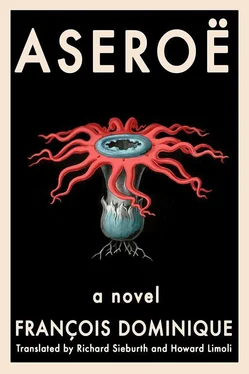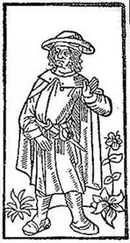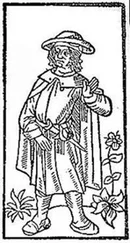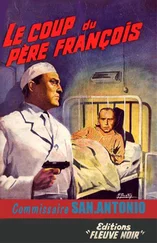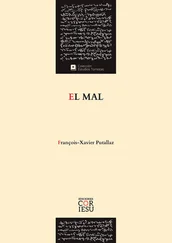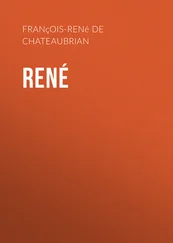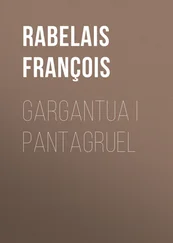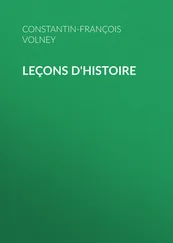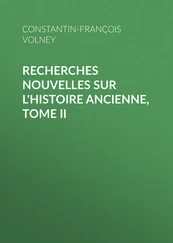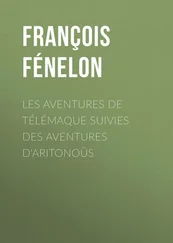François Dominique - Aseroë
Здесь есть возможность читать онлайн «François Dominique - Aseroë» весь текст электронной книги совершенно бесплатно (целиком полную версию без сокращений). В некоторых случаях можно слушать аудио, скачать через торрент в формате fb2 и присутствует краткое содержание. Город: New York, Год выпуска: 2020, ISBN: 2020, Издательство: Bellevue Literary Press, Жанр: Современная проза, на английском языке. Описание произведения, (предисловие) а так же отзывы посетителей доступны на портале библиотеки ЛибКат.
- Название:Aseroë
- Автор:
- Издательство:Bellevue Literary Press
- Жанр:
- Год:2020
- Город:New York
- ISBN:978-1-942658-78-8
- Рейтинг книги:5 / 5. Голосов: 1
-
Избранное:Добавить в избранное
- Отзывы:
-
Ваша оценка:
- 100
- 1
- 2
- 3
- 4
- 5
Aseroë: краткое содержание, описание и аннотация
Предлагаем к чтению аннотацию, описание, краткое содержание или предисловие (зависит от того, что написал сам автор книги «Aseroë»). Если вы не нашли необходимую информацию о книге — напишите в комментариях, мы постараемся отыскать её.
Aseroë — читать онлайн бесплатно полную книгу (весь текст) целиком
Ниже представлен текст книги, разбитый по страницам. Система сохранения места последней прочитанной страницы, позволяет с удобством читать онлайн бесплатно книгу «Aseroë», без необходимости каждый раз заново искать на чём Вы остановились. Поставьте закладку, и сможете в любой момент перейти на страницу, на которой закончили чтение.
Интервал:
Закладка:
I remember several stormy nights in mid-August in the Ardèche. I saw the clouds crumble down and burst over the Meyrand pass and the lightning illuminating mountain and valley. But the fascination exerted by Giorgione’s work doesn’t stem from some sort of painterly, representational “truth”—even if the painter’s art stirs in us the most vivid impression of a resemblance to what nature displays to us in the blink of an eye. In The Tempest , the most ephemeral moment of suddenness and the most prolonged moment of duration both undergo a violent reversal that modifies our fundamental perception of time.
It’s possible that some obscure motivation leads me to exaggerate. Is Giorgione’s procedure as singular as I had thought? Any portrait requires this same finesse: a smile, a subtle gesture, the intent of a gaze are as difficult to represent as the sudden flash of a storm. This very rational train of thought led me to abandon the above-mentioned short story, which would have necessarily led to my utter confusion.
But seven months later, I was somehow again caught up by my own story. I found myself at that time in a state of mind in which the mere mention of Giorgione’s name or that of any artist would have made me laugh self-consciously.
On the evening of September 22, contrary to my usual habits, I ate and drank more than was good for me, and went to bed quite out of sorts. Very early the next morning, I left home and wandered on foot through the forests as far as Châtillon-sur-Seine (a hike I undertake once a year). A remote inn on the banks of the Ource, near Voulaines-les-Templiers, was my intended goal after the first leg.
I was walking at a steady pace, admiring the sky, the impressive plant life, and all the things that came into my view at every turn of the road: the sod huts of the old foresters, the bushes with their nesting birds, the carpets of moss smirched with bloodred muscaria mushrooms, the animals here and there.
Late the following afternoon, I sighted a grove of elms among the oaks, these towering trees, spared from the disease that had ravaged their species, formed a perfect circle. Their majestic crowns commanded the respect of all the other nearby forms of vegetation. In the middle of this circle, the low grass lay like a freshly mown lawn, presenting me with several clusters of wild orchids—the delicate Ophrys apifera , or bee orchid.
Seated between two elms, I observed the columns of light between the branches. Evening was falling and the sky was smudged with clouds. Suddenly, several gusts of wind altered the lie of the clouds and the storm broke, rapid and bottomless, with unexpected intensity. I stood there, soaked from head to toe. Just preceding this uproar, a vivid flash had lit up the forest. It died out almost immediately in the approaching half-light. One or two hundred yards behind me, lightning fell upon the clearing. A shredded elm pointed its blackened splinters toward the sky. I ran off, gasping for breath, and without looking back, headed for my inn.
The next morning, still frightened by the intensity of the storm, I gave up on pushing toward Châtillon-sur-Seine and returned to my home in Plombières as soon as possible. During the miserable night spent in the inn, I had discovered that The Tempest and Antonio Brocardo’s letter to Giorgione (which I had read for the first time two years earlier) were fragments of one and the same work, a diptych simultaneous in its optical and mental image—the painting and the epistle indissolubly comingled into a choreography of time.
I needed to verify this. Since I couldn’t return to Venice, I gathered together some reproductions and I read and reread Brocardo’s letter to his painter friend. Surprise and alarm amplified my initial enthusiasm: to capture the lightning as Giogione had done would involve far more than creating the mere illusion of freezing time. I sensed that the painter had engaged in a mercilessly lucid act—to gamble his entire project, as well as all his artistic ambitions, on a fraction of a second, on the sudden disappearance of himself. One can read the watermark pressed below the surface of the sky of The Tempest: “Everything is about to disappear. Everything shall disappear.”
This visual thought—neither a lament for years gone by nor a mortification intended to instruct us to forget the vanities of this world—has no other purpose than to exalt the ephemeral, to praise the stubborn persistence of movement, to extol the precise stroke: the passionate leap of the dancer ahead of a fall.
This discovery modified all my convictions. It gave new meaning and an entirely different cast to certain facts—later associated with Lausanne and Budapest—whose true import had until then escaped me.
At the moment I’m writing this (fall equinox, 6:34 A.M.), I have before my eyes the following sentence of Robert Walser’s, written toward the end of his life: “Write while dancing.” And also these words that Suzanne Cordelier attributed to an exceptional dancer (La Argentina) on May 10, 1936. As legend has it, she addressed a full house, overwhelmed with emotion: “I’m quite willing to dance some more for you, whatever you like, but I’ve run out of music.” Followed by renewed applause as the curtain came down and the lights dimmed and the dustcovers were draped over the velvet of the loges. The image of La Argentina entering her house two months later and collapsing on the threshold. I also have before me a little photo of Vera Ouckama Knoop, the sight of whom inspired Rilke to make a last effort at writing his Sonnets to Orpheus and his final Elegies . Images lost in infinity, in the depths of a hall of mirrors, drowned in the All that is Absence. Farewell, face (captured in a snapshot). Farewell, dance figure. Farewell, final whirl of death.
A poem, a painter’s glance: the finale of a requiem for fleeting beauty, a requiem for disappearance.
I can easily imagine the conversation encouraged by true friendship: Giorgione said to Brocardo that in a dream he had seen Apelles’ fresco in the temple of Artemis at Ephesus, Alexander and Lightning . The sky on fire—unrepresentable—was pictured this single time. But of this ancient destroyed temple we have no trace—nor any evidence of Apelles’ painting. The lightning, reclaiming its divine rights, must have erased the profane image. I imagine this dialogue and I think that Giorgione must have bettered Apelles by far, having represented both the flash of lightning and the disappearance of the mortal who had witnessed the flash.
Now (April 16, 6:45 A.M.), I’m looking through a magnifying glass at an excellent reproduction of The Tempest . The colorless light has no source. Despite the painting’s patina of age, I perceive a bolt of lightning composed of every hue, including black. On either side of the river, the young man and the woman and child are calm, far too calm. Are they awaiting the promise of another life? A glow envelops them all, as well as the walls and the foliage. Night and day escape from the controversy of contrasts, gathered together in the heavenly storm.
I think of Giorgio Barbelli—that is, Giorgione—as a brother. The black death snatched him away. His days were numbered. His poet friend Brocardo, who fled Venice because of the war, sent him letters that went missing. In the years 1480–1510, the French king’s League laid waste to the villages of the Veneto and the plague broke out amid the devastations of war. On May 13, 1510, Giorgione received a final letter from his friend Antonio Brocardo. Here it is, translated from Italian:
Dear Giorgio, How pleasant it is to stroll the city streets, as the peripatetic philosophers and the wise men of old once did, speaking of our cats and of the hidden face of the world. By respecting my silence you have strengthened my taste for reticence. Sans image, what good are words? Mere pebbles rolling along a riverbed where we two cannot walk abreast, forced to proceed with our noses to our feet, without seeing anything of the world, without anything possessing the slightest meaning—except that we’re moving forward like beasts. I can see very well where we’re headed: we’re about ready to believe in the power of speech, to be caught up in its game. What a wonder the power of speech, yet how harsh and pure its exile, which so cuts us off from life. Speech is within us, yet we’re also caught up inside it. Once the ink of words is dried on paper, there’s nothing left around us but immense solitude—or death upon the shores of the sea. All is nothingness. But among the ashes of words I know very well that we would continue to write to each other, like children, with our fingers. I can clearly see what it is that obliges the two of us to write or paint: it’s that naïve desire to bring time to a halt, to take up residence in our solitude once again. We want to go on living via our signs, having now become the gods of our own immortality. But what a useless thing to pursue: this cult of immortality. If we cannot know how to live, let us at least learn to die. Our work is like the faith of the simpleminded. The sound of verse is its surest music. We are attached to signs that create a chain, binding man to man. And yet, it is only from the depths of our silence that we speak; it is only as solitaries that we come together as men. But are we yet sufficiently alone to be free? Life is such a small thing that one could easily withdraw into one’s room in order to invent the world. Again and again we repeat the same signs with new images. Come on, my special friend, we so enjoy living that we shall find pleasure in it in the end: let’s rediscover the delights of writing and of painting in quiet rooms. Our ultimate vanity. As if the only legitimate love were the love of absence. They say the plague is now general: take good care of yourself! Otherwise I would never have been able to speak to you as I have.
Читать дальшеИнтервал:
Закладка:
Похожие книги на «Aseroë»
Представляем Вашему вниманию похожие книги на «Aseroë» списком для выбора. Мы отобрали схожую по названию и смыслу литературу в надежде предоставить читателям больше вариантов отыскать новые, интересные, ещё непрочитанные произведения.
Обсуждение, отзывы о книге «Aseroë» и просто собственные мнения читателей. Оставьте ваши комментарии, напишите, что Вы думаете о произведении, его смысле или главных героях. Укажите что конкретно понравилось, а что нет, и почему Вы так считаете.
